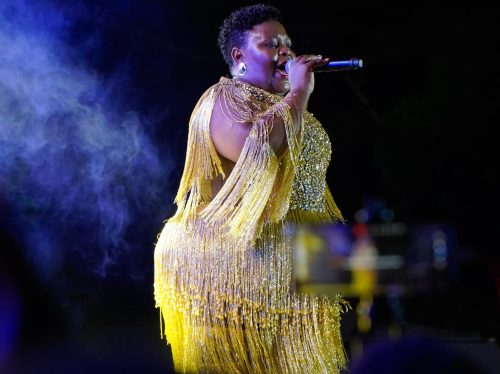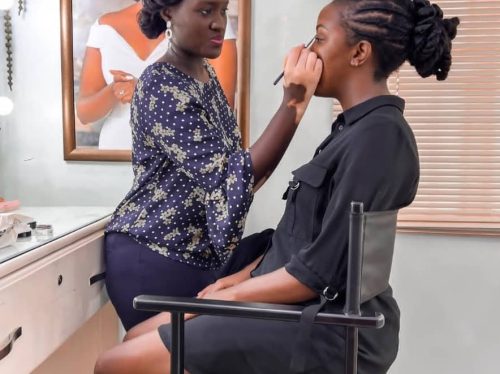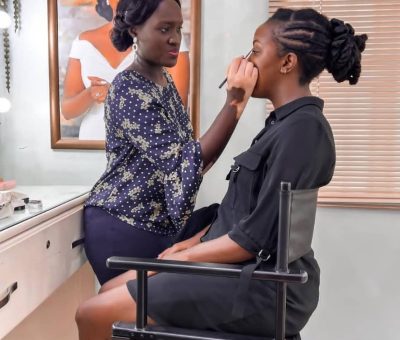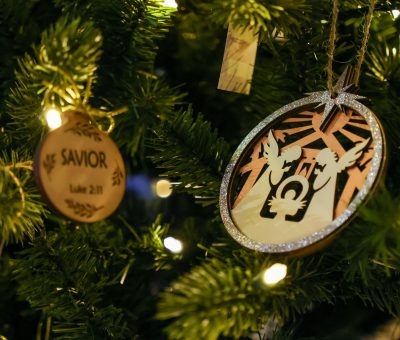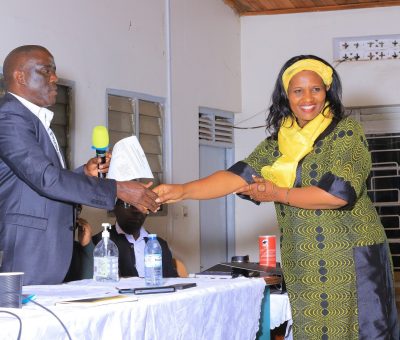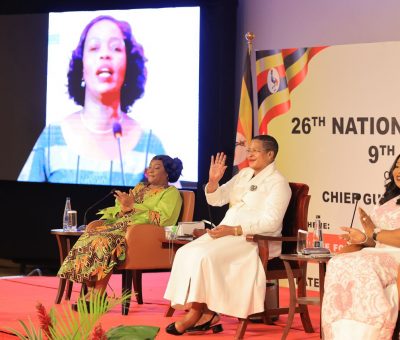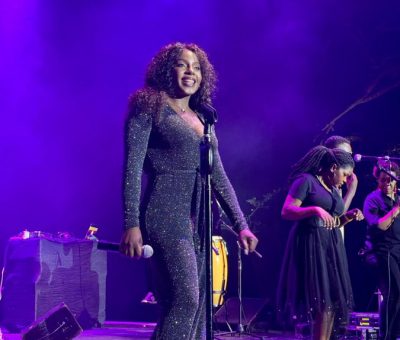A dislike for other forms of exercise led Opoka to Zumba

Geraldine Opoka is a certified zumba instructor, getting her certificate in November 2014 although she started teaching her own classes from September 2014. This journey started before Christmas in December 2013 when everyone takes a break from working out. Opoka, a lover of dance ventured into a class she had heard a lot about.
“I had long searched for a place to engage in dance as a form of exercise in vain. Until today, exercises such as running, and aerobics do not excite me, so when I walked into this room, I felt that I had found life and myself. Just seeing a group of people dancing to great music was exciting.”
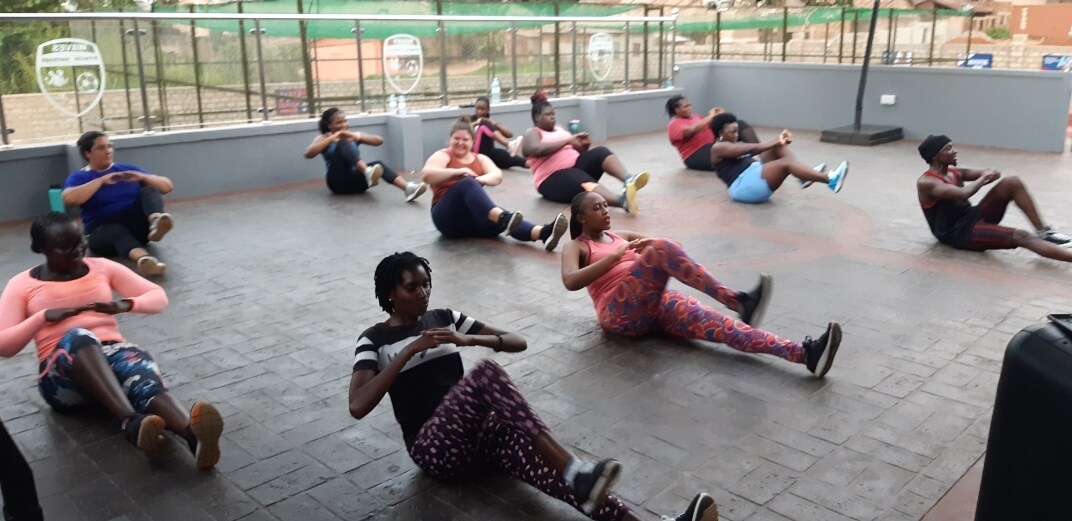
Almost immediately, she became committed to the workout and kept dancing so that by the time people returned from the Christmas break, Opoka was no longer at the back but the front of the class.
“I already knew some routines but what stood out for me even before considering teaching was that at the end of the class I wanted to show people how certain dance moves were done. Being at the front, I could easily see in the mirror those who were missing steps or not doing the right thing. I really wanted to help them that I even tried to make eye contact with some to try and show them the right thing to do.”
A few months later, Opoka thought it wise to get a place closer to home in Buziga where she could dance and start a new class to spread the absolute joy she had found.
“I did not like any other exercise out there save for Zumba because the style is easy to follow even for those who do not know certain dance steps. For Zumba, the moves are repetitive through the song (twice or thrice) so it is easy for one to follow.”
Opoka started with classes twice a week making sure they started at 6:45pm to avoid clashing with work schedules. However, during the same period, there was mounting conflict between her and the line manager at her place of work as well as her team. While the tension was no longer healthy, she was scared to quit because save for dancing, there was no side income. Moreover, even though she knew she had to leave, she was too scared to resign until she was fired. And that was the start of her life outside of formal employment.
With all her fears, Opoka knew she needed space to think, and dance was a great companion. She thus introduced morning classes, which also worked well since after taking children to school, she had nothing else to do.
“A few weeks in, I realised I loved it a lot, even if there was not much money owing to the small numbers. Besides, if I danced in the morning and evening, possibly three hours off my day, I would think throughout the day about what else I could do. Additionally, my clients were only women- maybe because I was female but I used that to my advantage, using the class as a space for us to be ourselves – talk about women issues without being apologetic or fear of who was listening. Therefore, I set the rules of the class- we were not the levels or standards society has imposed on us. As such, we were not mothers, bosses, somebody’s sister or whatever, but just women here to have a good time. The other rule was that everyone must smile and move while in the class- let yourself go.”
Opoka says societal standards have put the pedestal so high for women – be the best mother, best wife even to the most selfish husband, and best daughter because you are competing with everyone else.
“These standards cause us to compete with and tear down each other because we have been taught that any woman who looks like they are struggling is a failure. Therefore, when we see signs of weakness in others, we are quick to tear them down lest someone else sees our own weakness. As such, I told them that we are all the same irrespective of our backgrounds because minus them, every woman wants to be appreciated, seen and loved. With this, they blossomed as we discovered who we truly are,” she shares.
However, this newfound bliss was not without thorns although she chose to thank God for all of them and draw lessons from each. Her first major setback, after starting the business, was getting into a partnership and discovering that it would not thrive.
“First of all, our foundation was wrong; I was afraid to start on my own while my partner was very strong and confident. Then, we did not streamline roles and responsibilities so eventually we were in each other’s way and the partnership dissolved with the business. I then begun Soul Fitness in 2017 in a new place all by myself. While the beginning was a challenge, it was an opportunity to show myself that I was capable.”
Then when the business was flourishing, with several opportunities opening up, lockdown happened causing her to shut the studio because for eight months, facilities were closed. When they reopened, it was senseless to keep the doors open because her facility did not meet the set reopening standards (lacking ventilation), especially as Opoka was part of the committee that advocated for fitness facilities to be reopened and set the SoPs.
She thus left Mawanda Road in Kampala for Kembabazi in Naguru and started from scratch. “At the start, there were only two clients but after a few months, we would have full physical classes coupled with online classes that I started to cater for the corporate world. Then another lockdown was imposed. While open air classes are allowed, I am back to zero and I must encourage myself that this is where we are as I look for new ways to make it work even in such circumstances,” Opoka smiles.
In spite of it all, she continues to make dance impact and change people’s lives, mainly women, for the better.


